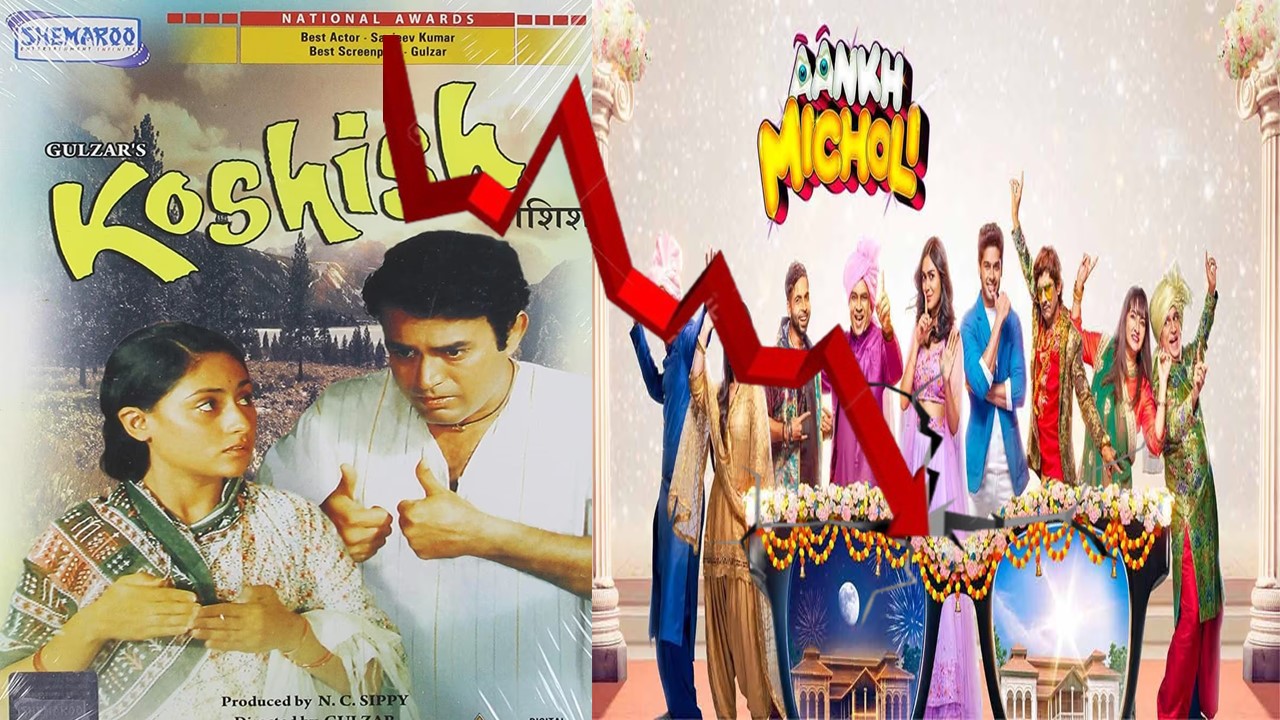In the world of Hindi cinema, movies often serve as a reflection of societal values, presenting stories that resonate with audiences. However, the recent Bollywood film “Aankh Micholi” has found itself amidst controversy, facing criticism from the Goa State Commissioner for Persons with Disabilities. The Chief Commissioner, invoking the Rights of Persons with Disabilities Act, 2016, issued notices to the movie makers and the Central Bureau of Film Certification for alleged violations.
The movie unfolds within a family of six, where four members grapple with various disabilities. The narrative primarily centers around the lead character, portrayed by Mrunal Thakur, who lives with a visual disability. What sets the tone for concern is the underlying premise of the film, suggesting that disability is akin to a disease that must be kept hidden, especially in the context of marriage.
This portrayal stands in stark contrast to the principles of the social model of disability, which has been championed by the disability movement across generations. According to this model, the source of disability is identified as societal barriers rather than an individual’s medical condition. The Rights of Persons with Disabilities Act, 2016, further reinforces this perspective by defining a person with a disability in a more social sense, emphasizing long-term impairments hindering full and effective participation in society.
Also read: Beyond the Flash: Randeep Hooda’s Unique Manipuri Wedding
The movie’s misinterpretation of the RPwD Act becomes evident as it frames disability as a “beemari” or disease, perpetuating stereotypes and undermining the dignity of persons with disabilities. While the makers argue for freedom of expression and creative liberty, these rights are not absolute and are subject to reasonable restrictions, including considerations of decency and morality.
In the cinematic world, Section 5B of the Cinematograph Act, 1952, provides authorities with the discretion to withhold certification for films that go against the principles of decency and morality. This becomes a crucial point of contention when a film’s narrative strays into territory that may be deemed indecent or morally questionable.
The call for alignment between the Cinematograph Act and the principles of the RPwD Act gains significance in light of the latter’s emphasis on ensuring equality and dignity for persons with disabilities. This alignment is crucial to foster a cinematic landscape that respects and upholds the rights of individuals with disabilities.
Historically, Indian cinema has depicted disability through various lenses, often perpetuating stereotypes. Movies have tended to portray disability as punitive, depicting individuals as dependent, experiencing disequilibrium, or facing maladjustment in society. This depiction has hindered progress and contributed to societal misconceptions about disability.
However, there has been a notable transition in Hindi cinema with films like “Black” and “Koshish.” These movies have moved away from traditional stereotypes, presenting more meaningful and nuanced depictions of disability. This shift signals a positive direction in the portrayal of individuals with disabilities on the silver screen.
>>>Click the link to Join Our WhatsApp Channel<<<
Reflecting on the past, Gulzar’s 1972 classic, “Koshish,” stands as a testament to a more progressive understanding of disability. The film, featuring actors living with disabilities, showcased independent lives untouched by societal interference. The decline from such nuanced portrayals in “Koshish” to the questionable representation in “Aankh Micholi” highlights an intellectual bankruptcy among today’s filmmakers.
To sum it all, the criticism directed at “Aankh Micholi” underscores the importance of responsible storytelling in cinema, especially when it comes to representing marginalized communities. The film industry should strive to create narratives that align with the principles of equality, dignity, and respect for all individuals, including those with disabilities. A cinematic landscape that embraces diversity and challenges stereotypes contributes to a more inclusive and empathetic society.
Support TFI:
Support us to strengthen the ‘Right’ ideology of cultural nationalism by purchasing the best quality garments from TFI-STORE.COM

